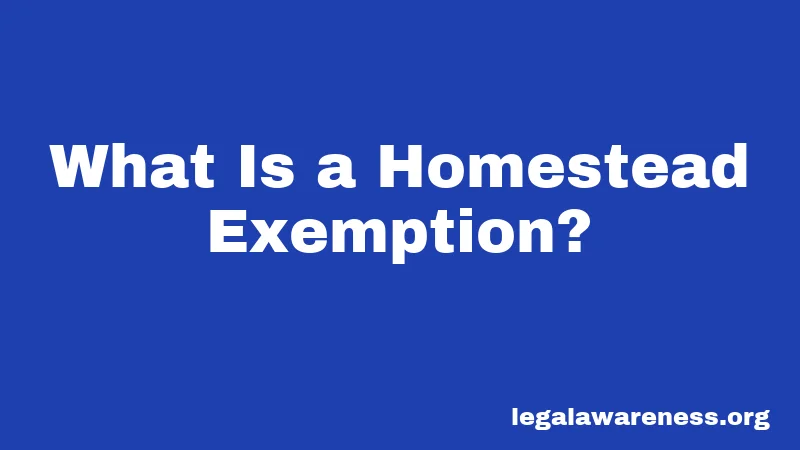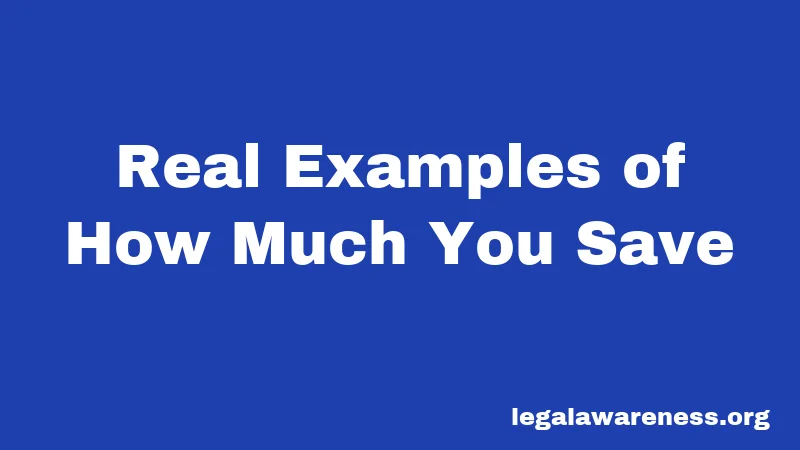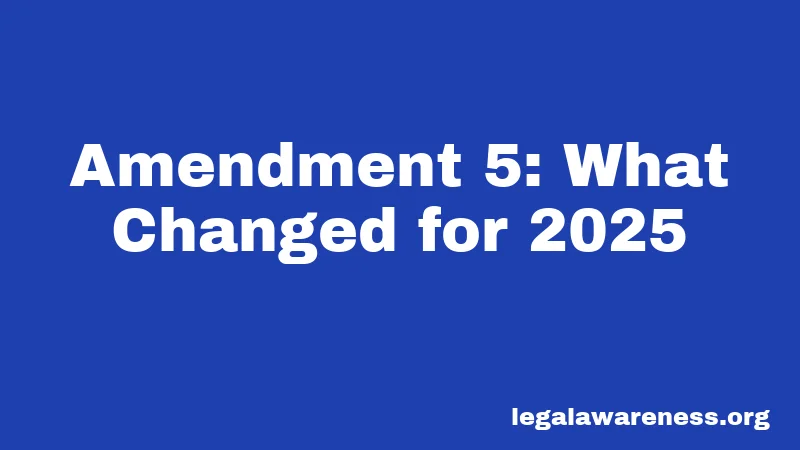Florida Homestead Laws in 2026: Your Complete Tax Savings Blueprint
Most people have no idea what they’re missing on their property taxes. Seriously. If you own a home in Florida and live in it, you could be leaving thousands of dollars on the table every single year. The good news? There’s a powerful law designed specifically to help you keep more money in your pocket.
Florida’s homestead exemption is one of the best property tax breaks in the entire country. We’re talking about reducing your taxable property value by up to $50,722 right now. And with Amendment 5 that just kicked in for 2025, the rules got even better. Let’s break down exactly how this works and what you need to do to claim your share.
What Is a Homestead Exemption?

Here’s the basic idea: You own a home. You live in it. The government wants to help you keep more of your money. That’s what a homestead exemption does.
A homestead exemption is a constitutional benefit that reduces the value the government uses to calculate your property taxes. Think of it like this: Your home might be worth $400,000, but with the exemption, the government only taxes it as if it were worth around $349,000. That difference? That’s where your savings come from.
Right now (for 2025 and 2026), you can get an exemption worth up to $50,722. This isn’t a one-time thing either. It applies every single year to your property taxes. Depending on where you live in Florida, this typically saves homeowners between $500 and $2,000 per year. Pretty straightforward, right?
How the Two-Tier Exemption Works
Here’s where it gets interesting. Florida’s homestead exemption actually has two parts, and understanding this matters.
The First $25,000: Universal Protection
The first $25,000 exemption applies to all your property taxes. All of them. This means it protects your home from school district taxes, county taxes, city taxes, and everything else. No matter what taxes are levied, this first chunk of exemption covers everything.
The Second $25,722: Non-School Taxes Only
Once your home is valued at $50,000 or more, you automatically get a second exemption. This one is worth up to $25,722 for tax year 2025 (it gets adjusted every year for inflation). Here’s the catch though: This second exemption only applies to non-school taxes.
So if your assessed value is between $50,000 and $75,000, you get the second exemption applied to that amount, but not the school portion of your bill. This is actually important to understand. Your school taxes (about 40% of your average Florida property tax bill) aren’t touched by the second exemption.
Confused about how this actually looks? Let me break it down with real numbers.
Real Examples of How Much You Save

Let’s say your home is assessed at $200,000. Here’s what happens:
The first $25,000 is totally protected from all taxes. That leaves $175,000 still subject to taxation. With the second exemption of about $25,722, that gets subtracted too. Now you’re only paying taxes on roughly $149,278 instead of the full $200,000. That’s a difference of about $50,722 in protected value.
On a typical property tax rate of 20 mills (which is fairly standard across Florida), this saves you around $1,000 annually. Every single year. Year after year.
Another example: You own a $75,000 home. The first $25,000 gets fully exempted. Then you get the additional $25,000 exemption applied to the assessed value between $50,000 and $75,000. Total exemption? Around $50,000, leaving you with only $25,000 subject to taxation. That’s a massive break on such a property.
The “Save Our Homes” Cap: Where It Gets Really Good
Okay, this is the part that gets people excited. Once you have a homestead exemption, Florida gives you another protection called the “Save Our Homes” assessment cap.
Here’s how it works: Your home’s assessed value can increase by a maximum of 3% per year, or the rate of inflation, whichever is lower. Even if your home’s actual market value skyrockets 20% or 30% in a hot real estate market (like Florida has seen), your taxes are protected.
Without this cap, your property taxes could double in just a few years. With it? Your taxes grow slowly and predictably. This is particularly huge if you’re living in an area where property values are jumping fast. Think about what happened during the Florida real estate boom. Homeowners with the cap saved enormous amounts compared to those without it.
Wait, here’s something important. You need to have the homestead exemption first to get the Save Our Homes cap. This is why getting that exemption filed is so critical.
Amendment 5: What Changed for 2025

In November 2024, Florida voters approved Amendment 5. Starting with the 2025 tax year, this amendment made the homestead exemption even better.
The big change? That second $25,000 exemption now gets an annual adjustment for inflation. The adjustment is based on the Consumer Price Index (CPI). If inflation is positive, the second exemption amount increases. If inflation is zero or negative, it stays the same. For tax year 2025, this adjustment brought the second exemption to approximately $25,722.
What does this mean for you? More money in your pocket each year as inflation happens. The government recognized that inflation was eating away at the benefits of that second exemption, so they fixed it. Pretty solid move.
Who Actually Qualifies?
Not everyone can claim a homestead exemption. Florida has specific rules about who gets this benefit.
You Must Own the Property
You need to have legal title or beneficial title to the property. It has to be recorded in your county’s official records. If you’re holding it in a trust, that’s fine, but you need to provide a copy of the trust document. You can’t just be renting someone else’s home and expect an exemption.
It Has to Be Your Permanent Residence
This is non-negotiable. The property must be your permanent home. You have to actually live there. You’re not just buying it as an investment property or a vacation getaway. This is where you make your home. If you rent out the property, you lose the exemption (with very limited exceptions for short-term situations).
You Must Live There on January 1st
The date matters. You have to be occupying the property on January 1st of the tax year you’re claiming the exemption for. So if you move into your new home on March 1st, you’ll need to wait until the next year to apply. You can’t skip around or get creative with the dates.
You’re a Florida Resident
You have to be a bona fide Florida resident. You can’t hold a homestead exemption in multiple states. You can’t claim this benefit in Florida while maintaining residency somewhere else. If you already have a homestead exemption claim from another state, Florida will deny your application.
Not sure if this applies to you? It probably does if you own your home and live in it. Those are really the main requirements.
How to Apply for Your Exemption
Here’s where a lot of people mess up. They own a home, they live in it, but they never actually file for the exemption. Don’t be that person.
The Deadline: March 1st
You have until March 1st of the tax year to apply. Mark this date in your calendar right now. If you miss this deadline, you lose the exemption for that entire year. You can file a late application after March 1st, but it’s much more complicated and you might have to pay a filing fee or go through a Value Adjustment Board hearing.
Where to File
You file your application with your county property appraiser. Not the county tax collector. Not the courthouse. The property appraiser’s office. Every county in Florida has one. You can usually apply online through their website, by mail, or in person.
What You’ll Need
Get these documents ready before you go:
You’ll need proof of ownership. Your deed works, or a copy of your recorded deed if you have it.
A Florida driver’s license or Florida identification card with your property address on it. Your current home address needs to be listed.
Your social security number (and your spouse’s, if applicable). Yes, they require this. It’s state law.
Proof of residency. Your voter registration card works great. So does your current vehicle registration if it shows the property address.
If you’re not a U.S. citizen, bring your green card (permanent resident card) or other proof of permanent residency status.
The Process
You fill out Form DR-501 (or your county might have a slightly different form number, but it’s basically the same). You gather your documents. You submit everything. Then you wait.
The property appraiser’s office will process your application and send you a notice. If everything checks out, you’ll get approved. You’ll receive a homestead exemption receipt card in late December every year. As long as nothing changes about your situation, you’ll be automatically renewed each year.
Honestly, this is pretty simple. Most people overthink it.
What Happens If You Move?
Here’s something that confuses a lot of people: What if you sell your home and buy another one in Florida?
The homestead exemption itself doesn’t transfer. You need to file a new application for your new property. But here’s the good news: The Save Our Homes benefit does transfer. You can “port” the accumulated assessment benefit to your new home.
Let’s say you’ve owned your home for 15 years. The assessment on your old home, thanks to the 3% cap, is way lower than the current market value. When you sell and buy a new Florida homestead, you can transfer that benefit. You can port up to $500,000 of the difference between the market value and the assessed value.
This is incredibly valuable. It means you can upgrade to a bigger or better home without getting crushed by property taxes. Without portability, you’d pay taxes on the full current market value of your new home. With it, you carry over your years of accumulated tax savings.
You have three years from when you sell your old homestead to port the benefit to a new one. Don’t wait longer than that or you lose it.
What You Lose the Exemption For
Being honest here: There are situations where you’ll lose your homestead exemption. Know them so you don’t get caught off guard.
If you sell your home, the exemption is gone for the new owner (they have to apply for their own). If you rent out your property, you lose it immediately. Even a short-term rental situation can disqualify you, depending on how it’s structured. If your ownership changes—whether through sale, divorce, or death—that’s a loss of exemption. You’re no longer using it as your permanent residence? Gone.
If you claim homestead exemption on another property in Florida, or if you claim a residency-based exemption in another state, Florida will deny your application. You can’t have two homestead exemptions. That’s considered fraud.
The biggest mistake people make is renting out their home without realizing they’ll lose the exemption. Don’t do that without understanding the consequences.
Penalties for Getting It Wrong
This is serious stuff. If you fail to report a change in your status that makes you ineligible for the exemption, or if you fraudulently claim an exemption you don’t qualify for, Florida comes after you.
You could be back-taxed for up to 10 years. You’ll owe all the taxes you should have paid plus 15% interest per year. On top of that, there’s a 50% penalty on the taxes you improperly exempted.
So if you’ve been getting an exemption you didn’t actually qualify for, you could end up owing a massive amount. Make sure you’re honest with your application and report any changes.
Special Situations and Extra Benefits
For Senior Homeowners (65+)
If you’re 65 or older, Florida offers additional homestead exemptions beyond the basic $50,722. These are available at the county level and often have income limits. For 2025, the income threshold for these additional senior exemptions is around $37,694. Check with your county property appraiser about what’s available in your area.
For Disabled Veterans
Disabled veterans can qualify for an exemption of the entire assessed value of their homestead property. Yes, all of it. The exemption amount depends on the degree of disability. This is a huge benefit and many veterans don’t know about it.
For Surviving First Responders
If your spouse was a first responder who died in the line of duty, you may qualify for a total exemption on your homestead. Contact your county property appraiser for details.
For Widows and Widowers
Florida offers homestead exemption benefits for widows and widowers in certain situations. These vary by county but are worth looking into if this applies to you.
The Future: What’s Coming in 2026 and Beyond
Here’s what’s happening right now in the Florida Legislature: There are serious proposals to dramatically change property taxes, including some that could eventually eliminate homestead property taxes entirely.
As of January 2026, lawmakers are discussing seven different property tax proposals that could go to voters in November 2026. Some would eliminate all non-school property taxes for homesteads. Others would phase it out over time. Some would provide relief only for seniors or those with property insurance.
Here’s the thing though: None of these have been approved yet. They all require voter approval (60% of voters have to say yes). And even if voters approved something tomorrow, the earliest impact would likely be in 2027 or later.
What does this mean for you? Keep claiming your current homestead exemption. It’s real money in your pocket right now. Don’t wait around hoping taxes get eliminated. By the time that happens (if it does), you’ll have left years of savings on the table.
Frequently Asked Questions
If I get a homestead exemption, does it transfer when I sell my home?
No, the exemption itself doesn’t transfer. But the Save Our Homes benefit can be “ported” to your new homestead. You’ll need to apply for a new exemption on your new property. The portal benefit (the assessment cap savings) can move with you, which is the valuable part.
Can I have a homestead exemption on a mobile home or condo?
Yes, absolutely. Condominiums, mobile homes, and manufactured homes all qualify for homestead exemptions. Same rules apply. You own it, you live in it as your permanent residence, and you apply before March 1st.
What if I’m buying my first home?
You’re eligible right from the start, even as a first-time homebuyer. Just apply before March 1st of the tax year. You’ll need the standard documents proving ownership and residency.
Is there a time limit on how long I can keep my homestead exemption?
Nope. As long as you own the property and live in it as your permanent residence, you keep it year after year. The exemption renews automatically unless something changes about your situation.
What if the property is held in a trust?
That’s fine. You can still get the exemption. You’ll just need to provide a copy of the trust document showing you as the beneficiary or trustee. The property still needs to be your permanent residence.
If I have a mortgage on my homestead, does that affect the exemption?
Not at all. The exemption applies regardless of whether you own the home outright or have a mortgage, home equity line of credit, or even a second mortgage. The only debts that can threaten your homestead protection are property tax liens, IRS liens, and liens for work done on the home.
Final Thoughts
Here’s the bottom line: If you own a home in Florida and live in it, you probably qualify for a homestead exemption. If you don’t have one, you’re literally leaving thousands of dollars on the table. Amendment 5 made it even better starting in 2025. The Save Our Homes assessment cap keeps your taxes from skyrocketing even if property values in your area surge.
Don’t overthink this. File for your exemption before March 1st of the next tax year. Gather your documents. Apply through your county property appraiser. That’s it. You’re done. The government will take care of the rest.
Stay informed about potential future changes to property tax law. But in the meantime, take advantage of the powerful protections Florida offers right now. It’s one of the best things the state does for homeowners.
References
Florida Department of Revenue – Homestead Exemption Information
Florida Statutes Section 196.031 – Exemption of Homesteads
Amendment 5 Information – Florida Homestead Exemption 2025
Florida Legislature – Property Tax Reform Proposals 2026
Your County Property Appraiser’s Office – Find Application Forms and Local Deadlines
